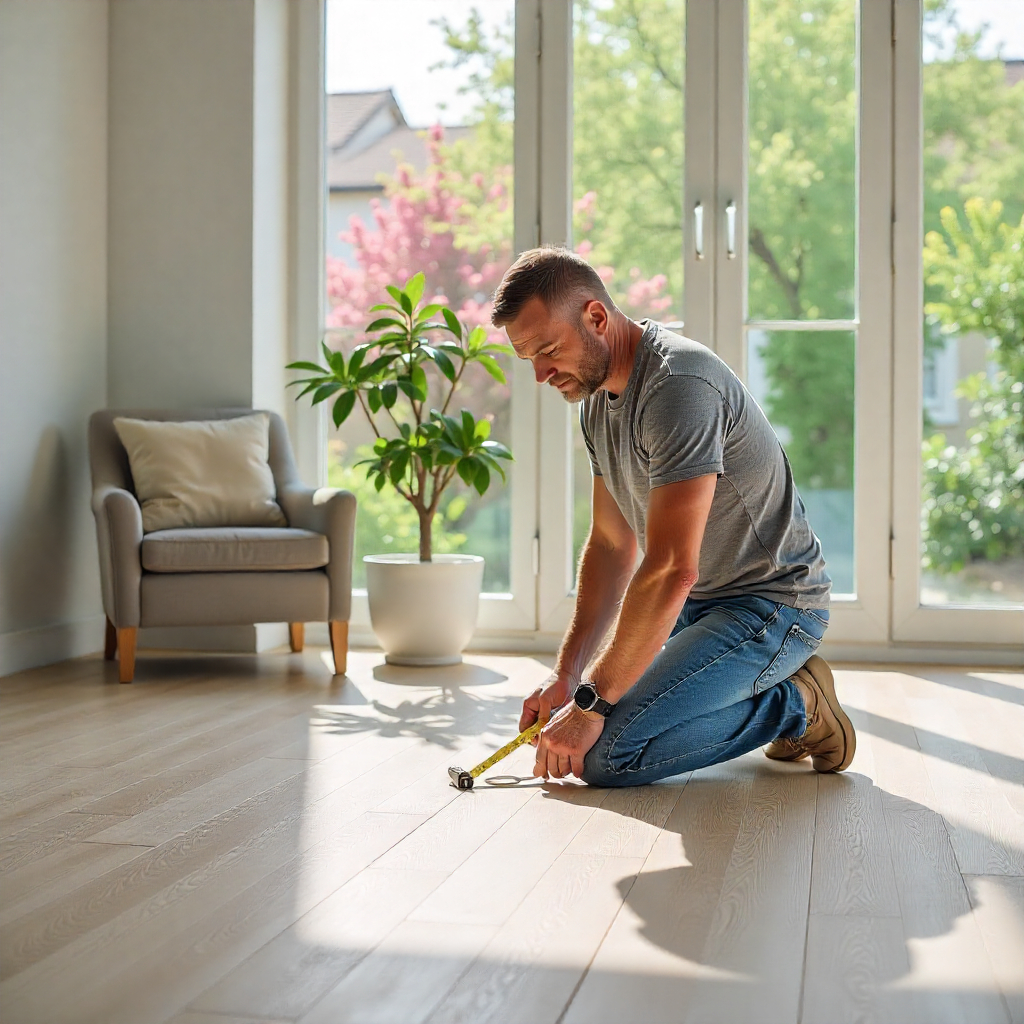Standard Vinyl vs. Luxury Vinyl Flooring: What You Need to Know
For decades, sheet vinyl flooring has been the go-to option for bathrooms, kitchens, basements, and laundry rooms thanks to its water and stain resistance. More recently, manufacturers have introduced thicker, more durable luxury vinyl flooring (LVF) in planks or tiles. Both standard and luxury vinyl have advantages and drawbacks—here’s how they compare.
Key Differences
Standard Vinyl
- Formats: Available in sheets or square tiles.
- Construction: Made from a thin felt or fiberglass backing topped with a vinyl design layer and protective coating.
- Thickness: Flexible and thin, with a wear layer only 10–15 mils (0.01–0.015 inches), making it prone to dents and tears.
- Feel: Can feel hard underfoot, especially on concrete.
Luxury Vinyl (LVP/LVT)
- Formats: Sold as planks or tiles with click-lock installation, similar to laminate flooring.
- Construction: Multi-layered (6–8 layers) with a protective topcoat, wear layer, printed design, foam cushioning, fiberglass, and rigid PVC backing. Some stone-look options include ground minerals like limestone.
- Thickness: Typically 2–8 mm (0.08–0.3 inches), much thicker than standard vinyl. (We don’t recommend to use any LVP less than 4 mm).
- Feel: Semi-rigid with built-in cushioning, making it more comfortable to walk on.
Comparison at a Glance
| Feature | Standard Vinyl | Luxury Vinyl |
|---|---|---|
| Cost | $0.50–$2 per sq. ft. | $2–$7 per sq. ft. |
| Thickness | Thin, flexible | Thicker, rigid |
| Dimensions | 6–12 ft. rolls; 6–18 in. tiles | 48 x 4.5 in. planks; 12–18 in. tiles |
| Installation | Glue-down method | Click-lock, floating system |
| Durability | Prone to scratches/tears | More scratch- and dent-resistant |
| Resale Value | Considered budget flooring | Seen as more upscale |
| Water Resistance | Excellent (fewer seams in sheets) | Good, but seams may allow seepage |
| Lifespan | 10–15 years | 20–25 years |
Appearance
- Standard Vinyl: Offers designs that mimic stone, ceramic, or wood, but patterns can look less realistic due to fewer seams.
- Luxury Vinyl: Planks are designed to resemble wood, while tiles imitate stone or ceramic with impressive realism.
Winner: Luxury Vinyl
Water & Heat Resistance
- Standard Vinyl: Excellent for waterproofing, especially in large sheets with minimal seams.
- Luxury Vinyl: Waterproof but seams between planks/tiles can allow water penetration. However, some high quality LVP does provide good waterproof protection.
Winner: Standard Vinyl
Cleaning & Maintenance
Both types are easy to clean with sweeping, vacuuming, or damp mopping. Neither requires waxing or sealing.
Winner: Tie
Durability & Repairs
- Standard Vinyl: Softer surface, easily scratched or torn, difficult to repair.
- Luxury Vinyl: Thicker wear layer and planks can be individually replaced.
Winner: Luxury Vinyl
Installation
- Standard Vinyl: Usually glued down; sheets are bulky to handle and often require professional installation.
- Luxury Vinyl: DIY-friendly with click-lock edges that float over the subfloor.
Winner: Luxury Vinyl
Cost
- Standard Vinyl: $0.50–$2 per sq. ft. (+$1–$2 for professional installation).
- Luxury Vinyl: $2–$4 per sq. ft. from big-box stores, with premium options up to $7.
Winner: Standard Vinyl
Lifespan
- Standard Vinyl: Typically 10–15 years.
- Luxury Vinyl: 20–25 years when properly maintained.
Winner: Luxury Vinyl
Comfort & Sound
- Standard Vinyl: Thin and hard underfoot, especially on concrete.
- Luxury Vinyl: Thicker, softer, and better at reducing noise—especially with cork or foam underlayment.
Winner: Luxury Vinyl
Resale Value
- Standard Vinyl: Viewed as budget flooring, adds little value.
- Luxury Vinyl: More desirable and comparable to laminate in boosting home appeal.
Winner: Luxury Vinyl
The Bottom Line
If budget is your main concern, standard vinyl is the more affordable option and performs especially well in high-moisture areas. However, if you want durability, comfort, and a more realistic appearance, luxury vinyl flooring is the better long-term investment.
Popular Brands
- Armstrong: Wide range of sheet vinyl and LVF, including engineered tiles with limestone content.
- Shaw: Known for premium-quality vinyl products.
- Mohawk: Offers hundreds of vinyl styles.
- COREtec: Specializes in high-end luxury vinyl with cork underlayment and easy installation.
FAQs
Is luxury vinyl better than standard vinyl?
Yes—LVF is more durable, realistic-looking, and longer-lasting, though more expensive.
What are the drawbacks of luxury vinyl?
Not eco-friendly, may off-gas VOCs, adhesives can be tough to remove, and it generally doesn’t add as much value as natural materials like wood or stone.
Which is better for bathrooms and kitchens?
Sheet vinyl offers better waterproofing with fewer seams, while luxury vinyl is better for resale and style.

